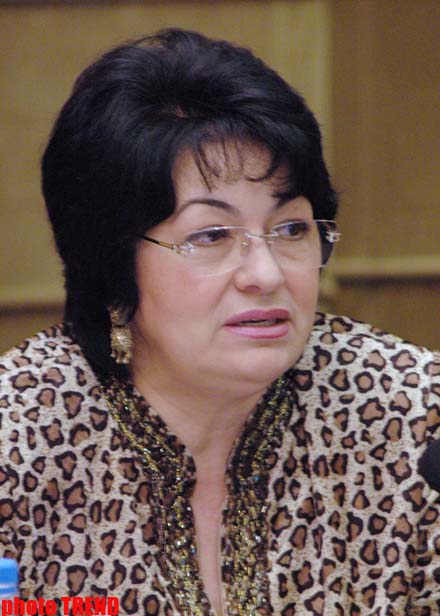Azerbaijan, Baku, April 5 /Trend, T.Hajiyev/
The OSCE Minsk Group's next visit to the region could lead to concrete results, chairperson of Azerbaijan Parliament's human rights committee, MP Rabiyat Aslanova told Trend, expressing her attitude towards the upcoming visit of the co-chairs.
"Recent events, a report by the field assessment mission and other issues tell about a particular specification of the attitude of this international organization towards the problem. I believe that this is a mission that will achieve the result. The Armenian side was seriously concerned about the effectiveness of this mission. I believe that this will have concrete result," said Aslanova.
She said intensification in the position of co-chairs is associated with the strengthening of Azerbaijan's position in the world.
"Azerbaijan's increasing position in the world, balanced and accurate foreign policy, the interests of world countries in Azerbaijan, tranquility and stability in the country, the ability to defend its sovereignty make Azerbaijan an attractive country for the world and significantly change the opinion of the world about Azerbaijan. Equal partnership of Azerbaijan with East and West countries testify that Azerbaijan is a reliable partner. And therefore, the number of countries supporting the position of Azerbaijan in the Nagorno-Karabakh issue is increasing every day," said Aslanova.
She said significant changes are visible in positions of international organizations. Aslanova said international organizations themselves should be interested in the implementation of international law in the region.
"Showing their helplessness in similar conflicts, the international organizations create a threat to their future, for their existence. It is no accidental that today, a number of international organizations should make a specific position on this issue in order to remain on the scene. Otherwise, the member countries of these organizations will have impression on helpless of this structure. Certainly, international organizations wishing to continue their existence must necessarily express their position. It is, first of all, their international reputation and commitment. The OSCE Minsk Group has come a long way since 1992. The structure failing to justify itself must demonstrate a specific position on the solution of the question, or more likely, it will cease to exist," said Aslanova.
She said the people of Azerbaijan are able to resolve the conflict themselves, but there is still hope that the international community will demonstrate its position on this issue and the conflict will be resolved within the international law.
The conflict between the two South Caucasus countries began in 1988 when Armenia made territorial claims against Azerbaijan. Armenian armed forces have occupied 20 percent of Azerbaijan since 1992, including the Nagorno-Karabakh region and seven surrounding districts.
Azerbaijan and Armenia signed a ceasefire agreement in 1994. The co-chairs of the OSCE Minsk Group - Russia, France, and the U.S. - are currently holding peace negotiations.
Armenia has not yet implemented the U.N. Security Council's four resolutions on the liberation of Nagorno-Karabakh and the surrounding regions.






